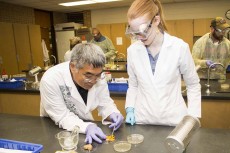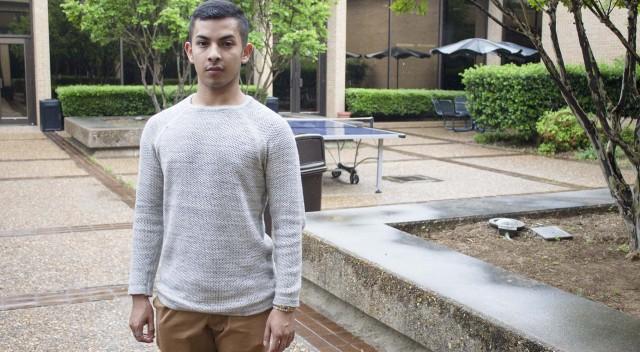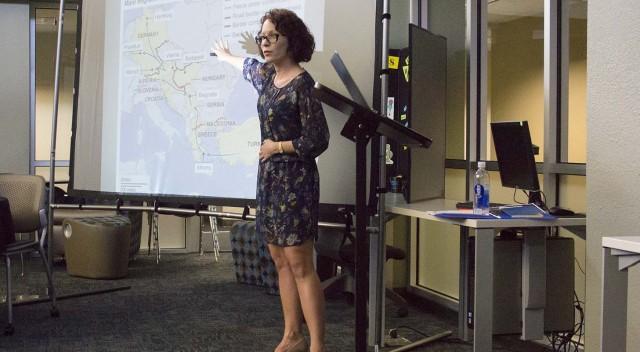By Lindsay Norman/ reporter

Bogdan Sierra Miranda/The Collegian
Students from a variety of majors had an opportunity to feel like true scientists when Student STEM Initiatives of NE hosted an exclusive open lab experiment, Hands on Approach to Microbiology — Spices as Antibacterial, April 4.
Brian Yamamoto, natural science professor at the University of Hawaii, led the experiment. Deb Scheiwe, NE biology assistant professor, assisted to help students with lab safety requirements and bring the experiment to life.
“We are in for a treat today,” she said. “Considering there was limited space for participants, we are pleased so many were interested in microbiology.”
Yamamoto opened the lab asking students if anyone cooks today using an old family recipe and bringing attention to the similar ingredients they all share.
“Before the discovery of refrigeration, spices were used as an antibacterial agent to keep food preserved,” he said. “This [Earth] is where it all comes from. We are trying to look with the ‘good eye’ what is already in front of us.”
The goal was to test antibacterial properties of familiar spices society still used today. Spices such as turmeric, garlic and cinnamon were but a few tested in two forms: powder and raw organic. Small amounts of both were separately examined with three different bacteria and then placed into an incubator for 24 hours.
“Western medicine antibiotics are derived from the bacteria in soil,” he said. “Here we will get to see actual proof from the different forms then create an hypothesis.”
Although many of the students were not biology majors, everyone shared a common interest in discovering the results. A student interested in nutrition found both forms naturally were antibacterial agents and discovered the raw garlic dominated by completely wiping out any bacteria, leaving no trace of growth.
“As you can see, we found they both contain antibacterial properties,” Yamamoto said. “From this experience, now, you can formulate ideas and experiment yourself. This is what science is all about.”





























